News
-
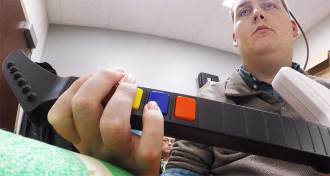 Neuroscience
NeuroscienceSpinal cord work-around reanimates paralyzed hand
A neural prosthesis can bypass a severed spinal cord, allowing a paralyzed hand to once again move.
-
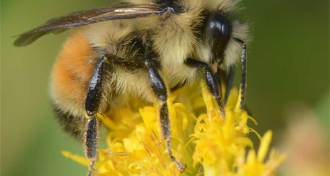 Climate
ClimatePollen becoming bee junk food as CO2 rises
Rising CO2 lowers protein content in pollen, threatening nutrition for bees.
By Susan Milius -
 Genetics
GeneticsSome people are resistant to genetic disease
People who should have genetic diseases but don’t may point to new treatments.
-
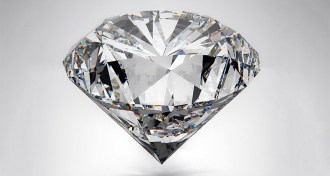 Earth
EarthMost diamonds share a common origin story
Most diamonds form from fluids deep inside Earth’s interior that contain carbonate compounds, new research suggests.
-
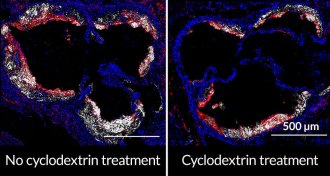 Health & Medicine
Health & MedicineA sugar can melt away cholesterol
A sugar called cyclodextrin removes cholesterol from hardened arteries in mouse studies.
-
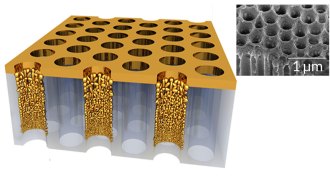 Physics
PhysicsTurning water to steam, no boiling required
A new material can convert water into steam with sunlight alone, and could be useful for making fresh water from salty.
-
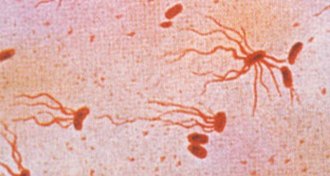 Life
LifeTyphoid toxin aids survival in mice
A DNA-damaging bacterial protein may prolong the lives of infected animals.
-
 Astronomy
AstronomyKey sugar needed for life could have formed in space
Sugar that forms backbone of cell machinery can form on icy grains blasted by ultraviolet light from young stars.
-
 Astronomy
AstronomyPossible source of high-energy neutrino reported
Scientists may have found the cosmic birthplace of an ultra-high energy neutrino: a blazar 9 billion light years away.
-
 Climate
ClimateSea levels could rise twice as fast as previously predicted
Sea level rise from Antarctica’s melting ice could accelerate faster and sooner than previously thought.
-
 Neuroscience
NeuroscienceHippocampus makes maps of social space, too
The hippocampus is a multitalented mapmaker.
-
 Physics
PhysicsFaint gravitational waves could soon be on LIGO’s radar
In a few years, LIGO could detect hints of faint gravitational waves from black holes too far away to be seen directly.